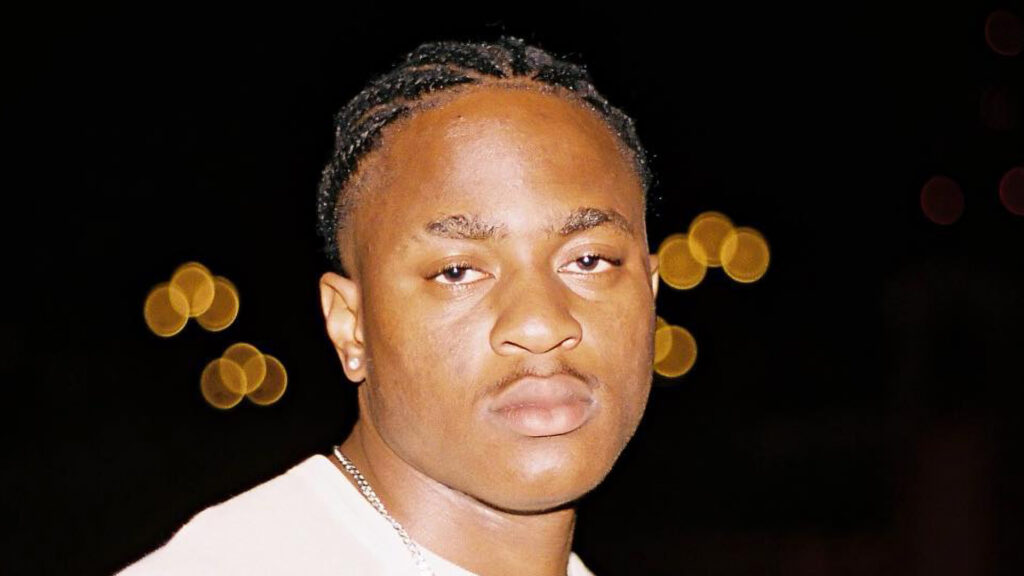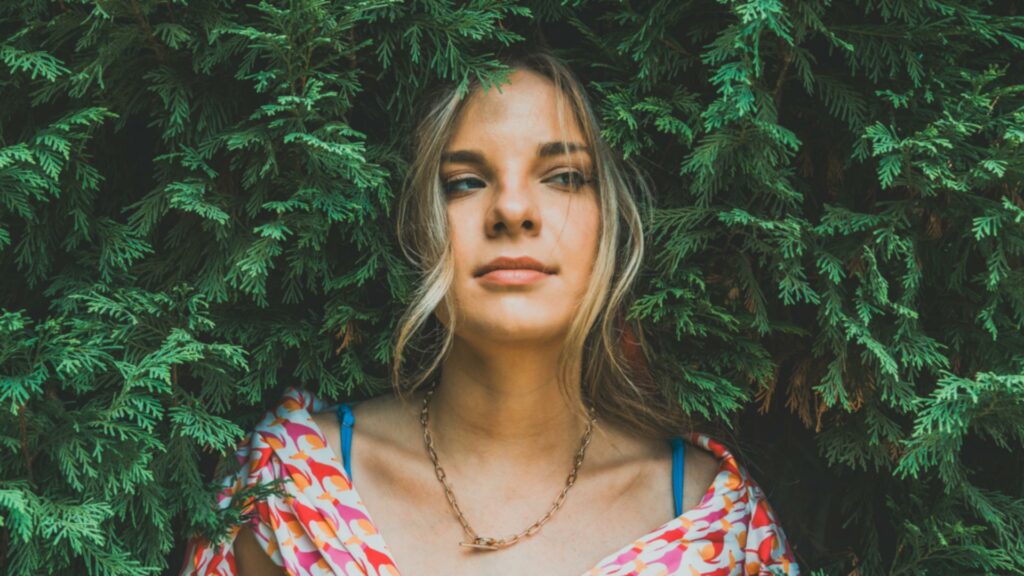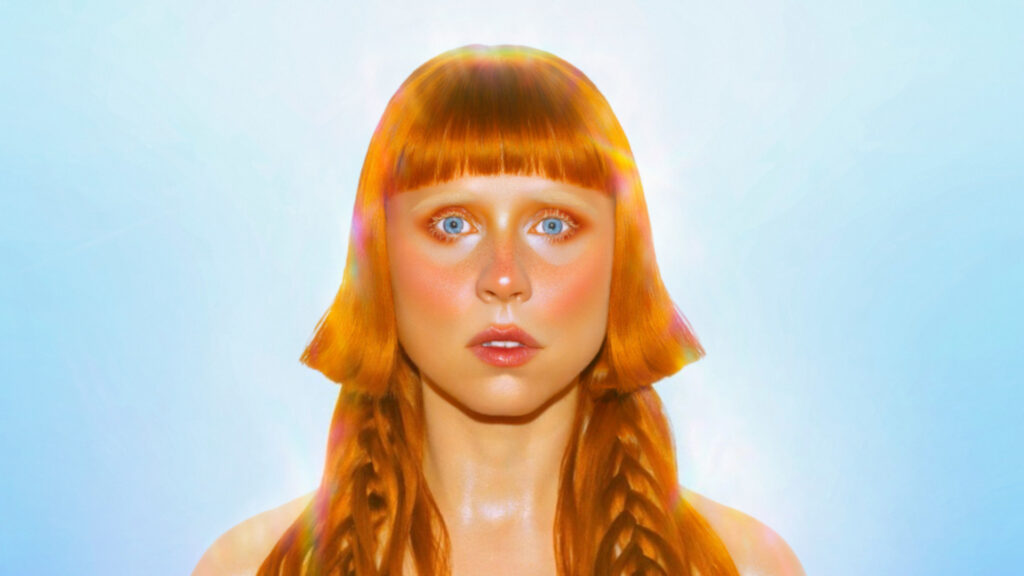Toronto’s rising artist Ameerah is breaking industry standards. As an R&B and Pop sensation, she seamlessly blends cultural influences and diverse music genres to create her unique sound. Her latest singles ‘Sickness’ and ‘Alibi’ have received significant attention, and she has a fresh single dropping in late June. Ameerah is here today to talk about her music, career, representation in the industry, and future plans.
Growing up in a family of musicians, how did that environment influence your musical style and career trajectory?
Growing up in a musical family inspired me to find my own passion. I was always encouraged to sing at home, in public settings, and with family. My family normalized singing and made me proud to have such a beautiful gift. It also strengthened my bond with them. I remember my uncle taking me on car rides, playing his favourite rock music, going on family road trips and listening to R&B, Hip-hop, and pop with my aunts, and watching early Bollywood movies with my family, keeping me close to Pakistani culture.
When I was little, my mother and grandmother would always sing lullabies to me before bed, which really connected us. Being the first-born child and having time with my family helped instil confidence in my voice and opened my horizon to many genres of music, which is reflected in my catalogue.
You’ve previously mentioned facing obstacles and stigmas as a South Asian woman in the music industry. How do you navigate and overcome these challenges?
Growing up, I never saw musicians who looked like me. This can be hard when you dream of being in an underrepresented industry. However, I used this as motivation to enter the field. When I tell people I’m a singer, sometimes I get strange looks, implying that I can’t sing because brown girls aren’t seen as soulful singers in a predominantly white and black industry. Or, people think I sing in Hindi, suggesting I don’t belong in English music. I don’t let this get to me because I know what I’m doing is different and not everyone knows how to handle situations that are ‘out of the ordinary.’
I see this as a blessing because I get to be a pioneer in an industry where South Asian women are underrepresented. I show my people that we can also be a part of something, regardless of what is deemed normal. It’s our job to change that narrative and create space for us. This is powerful, impactful, and honorable.
Your journey from uploading covers on YouTube to performing on radio stations and headlining events has been remarkable. What have been the key moments or decisions that brought you recognition?
Putting myself out there into the unknown was the start of my career. I always wanted to be an artist but never knew how or had the resources to pursue it. I remember making a deal with my mom in middle school to post YouTube videos if I achieved certain marks on my report card.
In university, I posted a cover of ‘Get You’ by Daniel Caesar on Instagram, and it started getting a lot of interaction. That video gave me the validation to continue. After posting more videos, I was tagged to record a song in a contest. There were only 24 hours left, but I posted it on my story and asked friends to tag me. I won the contest and had the opportunity to record at a studio for the first time. I felt extremely at peace, as if I’d done this before. I then started to release music consistently. My consistency and passion translated into opportunities. I also have to thank the people around me who see my potential and mention my name in rooms I’m not in.
Your music is often described as unconventional. How do you push the boundaries of R&B/Pop, and what inspires you to continue experimenting?
Being raised with access to many genres of music has helped shape my sound. I make what I like. Industry moguls say it’s important to stick to one category to build a fan base, but I disagree. I think it’s important to stay true to yourself. I make music for the fans, but also for myself and to fuel my passion. That’s why I explore different genres and test my limits. My confidence as an artist needs to expand my capabilities. When it comes to production, I like to use hip-hop-inspired elements like drums and bass patterns. I enjoy music with a bounce and feel like this can be achieved in all genres. Trying new things and experimenting with sound is about having fun. It’s a job, but it was a passion first. Having fun, letting loose, and trying something new is okay when creating.
You’ve headlined events like International Women’s Day in Brampton. Is advocating for women’s rights and representation important for you as an artist, and if so, why?
Advocating for women’s rights and representation in the entertainment industry is extremely important to me. Often, men are in high-level roles, managing women and telling them how to navigate their careers. However, I don’t see as many women in those roles as much as I’d like. As a woman, I feel safer being in rooms with other women. There have been many stories of men exploiting women in the industry, which makes me feel nervous sometimes. I would never generalize and say all men are like this because I have met and worked with some remarkable and honourable men. However, it’s important for women to feel safe and represented to flourish without hesitation. That’s why I try to work with women on many of my projects and have more women-led teams. Women are impactful, smart, and bring amazing ideas to the table.
I think they must receive more recognition and opportunities to grow in the entertainment industry. A man will never replicate a woman’s nature and divine energy.
Toronto has a vibrant music scene. How has being part of the community shaped your sound and career?
Toronto’s music scene is incredibly diverse. People from all over the world influence our music. Growing up here, I was exposed to Reggae, Hindi, Punjabi, Latin, Dancehall, Soca, Afrobeats, and more. The international influence of music shapes our vibrant scene.
What I love most is that everyone appreciates the cultural elements in the music. It’s never a problem if a brown artist wants to explore a song with some reggae influence or if a white artist wants to explore Latin music. We accept it because we know everyone is influenced by all cultures. Of course, respect is involved, but for the most part, artists are respectful and mindful of this. This environment shapes my sound as an artist.
Your latest singles, ‘Sickness’ and ‘Alibi,’ lean towards the dance/house genre. Is this a new direction you’re exploring, and what inspired this shift in style?
‘Sickness’ and ‘Alibi’ are some of my favourite records because they’re out of my comfort zone. I love to test my abilities and push my limits. I also love being able to dance, feel good, and have memories associated with music. Those two records were great for the summer and showcased a fun, unique sound that I want to continue incorporating into my music. The biggest reason I leaned into this genre is because I wanted to prove to myself that I can do anything I set my mind to. I always thought dance/house music was out of reach for me. I didn’t know how my audience would react or if I would sound good on those types of records. That’s why I wanted to try it.
As an artist, it’s important to step out of your comfort zone and crush limiting beliefs. I want to be versatile and unexpected. My fans deserve good music, but I want to surprise them every time. Leaning into genres that aren’t my typical ones brings that versatility to life. You can expect more records like ‘Sickness’ and ‘Alibi,’ but also like ‘Enemies’ and ‘ON THIS’!
With more projects planned for the future, what can fans expect from your upcoming releases, and how do you see your sound evolving?
I am excited to announce I will be releasing my first single of the year in mid-June. This single is more of a 2000s R&B/Pop-influenced record with a strong vocal performance. I want to remind my fans that I’m a singer first and that although I can make fun records, I still have it in me to hit those R&B notes. My new music is personal, and I wanted to showcase that a lot in my writing. After taking a break, I focused on perfecting my storytelling and writing. Fans can expect more vulnerability, rawness, and realness.
In terms of sound, I like to take my fans on a ride. They can expect more Pop and R&B records with a sprinkle of dance influence. I don’t want to give too much away, but my team and I are preparing something amazing for the end of the year, and I’m preparing the fans for that moment.
Cover photo by Yousef Moussa from Visual Dropouts
Next story


